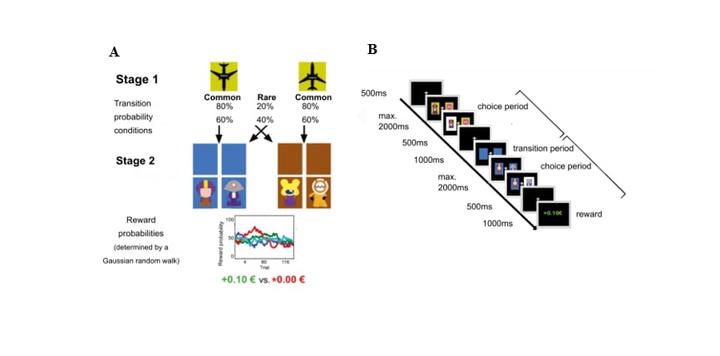Neural evidence for age-related deficits in the representation of state spaces
 Image credit: Unsplash
Image credit: Unsplash
Abstract
When under high cognitive demand older adults tend to resort to simpler, model-free decision strategies. This age-related shift in decision behaviour has been attributed todeficits in the representation of the cognitivemaps,or state spaces,necessary for more complex model-baseddecision-making.Yet, the neural mechanism behindthis shift remainsunclear. Weanalysed performance on a modified two-stage Markov taskusing a novel neurocomputational approach including computational modeling and single-trial EEG analyses to establish neural markers ofage-relatedchanges in goal-directed decision-making under different representational demands.Our results reveal thatthe shift to simpler decisionstrategiesin older adults is due a) impairments in the representation of the transition structure of the task and b) adiminished signaling of the reward value associated withdecision options. Consistent with the diminished state space hypothesis of human aging,our findings reveal that deficits in goal-directed, model-based behavior in older adults resultsfrom impairments in the representation of state spaces of cognitive tasks.